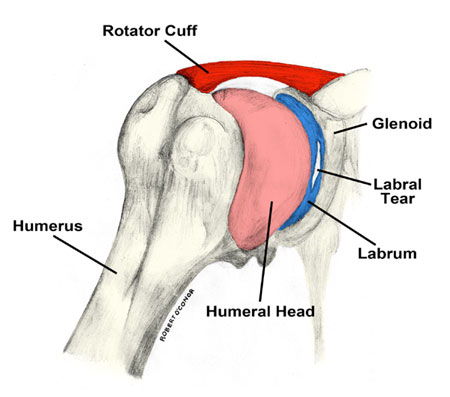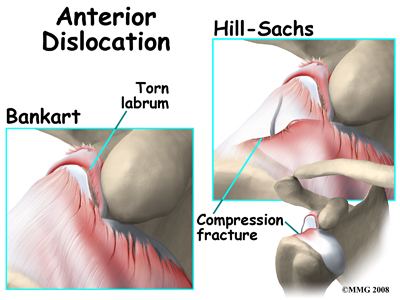http://www.ncbi.nlm.nih.gov/pmc/articles/PMC3445168/
This article leaves me with some questions about the certainty of only posterior dislocations for kiddo. It sounds so incredibly rare to have true posterior shoulder instability with dislocations (as opposed to sublux), but this is what we have been told she has all based off her first dislocation in the 4th grade, which was as a result of being kicked in the back shoulder at school as a child tried jumping over her. I am very curious to know if she has multi directional instability. I am going to read this more closely and do some research and ask the team.
Other questions this brings up:
1) How do we know that we have ruled out labral tear worsening or additional labral tears/lesions?
2) Does she have unidirectional, bidirectional, or multidirectional instability? And is it strictly posterior? I have definitely heard different doctors use the terms posterior and multidirectional, but I cannot find it written on any paperwork from any of her orthopedic doctors.
3) Have we ruled out bankart lesions?
4) Have we ruled out glenoid retroversion/rim erosion?
5) Have we ruled out reverse Hills-Sachs lesions?
6) Past MRI reports and doctor reports mentioned thickening of SGHL, but no explanation was given as to if that is important to this ongoing problem. Also, dyskinesis was mentioned in print, but no discussion from doctor as to relevance.
Each of these would need to be known in order to know how to proceed to fix the problem and I don't recall discussing any of these with the orthopedic surgeons with the only exception being that she was said to have a torn labrum that should heal on its own without surgery in 2013. No follow up from that Dr on that issue.
This article (Click here) has good definitions of the types of EDS and says the following regarding hypermobility and surgery: "Shoulder instability in patients with EDS is common.25,29,45 Unlike patients with traumatic instability, patients with hyperlaxity and instability are more likely to experience recurrent subluxation than dislocation.29 The evaluation of shoulder instability has been well described.45 However, because shoulder symptoms in hypermobile patients are not always the result of instability, rotator cuff impingement and other conditions need to be considered.29Nonoperative treatment should be maximized before surgery is indicated.25 When surgery is required, open inferior capsular shift is the gold standard, but the results of arthroscopic procedures may now achieve similar results.29"
I will add articles here, as I find them. If you happen to be reading this, and you have an article to share, please add it in the comments. Thank you.
Disney From a New Point of View
I remember that first trip, when our girls were only 3 and 5. They were full of excitement and energy and everything seemed to fall into place, perfectly. The magic was definitely with us. Once we caught that infectious desire to return to our new found happy place, we took any opportunity we could find to visit again. My oldest daughter was never a night owl, and she was always in bed by 8pm, but it didn't cramp our style. It wasn't until our last trip that we had to make such a change in the way we toured the World. With our oldest child in a wheelchair for the first time, we were forced to look at Walt Disney World from a new point of view, and guess what? It was just as magical.
Our oldest has a connective tissue disorder called Ehlers Danlos Syndrome (EDS). While EDS presents itself differently in different people, for our daughter, once she hit those growth spurt years, it presented as non stop inflammation of joints, ever present level of pain, and the worst symptom...her joints started dislocating daily. Her shoulders are the worst, now, with daily should dislocations. Her knees and ankles used to give her more trouble. What that meant for a day at Walt Disney World was that she couldn’t walk the parks safely, she couldn’t do all the rides, and she didn’t have the stamina that other kids her age may start with. When embarking on such a big and expensive vacation, it is a little difficult to consider that you will have to go slower, see less, and pay the same, but we found that this wasn’t the case at all.
To start with, we rented a small wheelchair in our home town and we utilized that in the airport, which worked great. Once we got to Disney, we were a little nervous that people may give her dirty looks or make rude comments since the average person would never know by looking at her that she is struggling to keep her shoulder connected, or her knee cap from sliding out. People see only a young, vibrant girl and therefor, it is easy to assume that she could be faking to take advantage of any perks of being in a wheelchair. I was ready to explain to anyone who stopped us what EDS was and how it affects her, but you know what? No one did comment. The cast members did not treat her any differently than they treated her sister on two legs. If anything, she got a bit more positive attention. While she did feel self conscious that there were eyes on her from other people, I let her know that curiosity is normal and encouraged her to smile and not worry.
We still started our day in the same early to rise fashion that we always do, and we hit our favorite rides and shows. While the wheelchair may have slowed us down a bit, we were still able to do everything we wanted to do. Cast members are well trained in dealing with someone in my daughter’s situation. She is able to transfer on her own, so she was able to stand up and get into a ride while her chair was moved to the ride exit for her use. The system is so smooth and efficient that we never felt hindered. For shows, there are designated areas for the wheelchairs, which were open for us each and every time.
Break time was longer, with leisurely meals and relaxing time by the pool. We didn’t make it to the evening shows and fireworks, as my daughter was too worn out by the time evening rolled around, but we didn’t let that worry us at all. The way I figure it is that anything we miss during the trip is a good excuse to come back again another day. Also, if there is one thing that repeat trips to Disney World has taught me, it’s that the magic is often found in unplanned moments, so we kept our eyes and hearts open and we had a beautiful trip.
Our first trip to Walt Disney World in a wheelchair was just as wonderful a trip as any from previous years. If I had to weigh it out, I may even say it was better because my daughter was able to do everything that she wanted to do before this disability took hold of her body and began to dictate her life. She works hard in physical therapy, year round, and she wears braces that have given her some additional freedoms, but she is unable to safely attend school due to such easy and frequent shoulder dislocations. Being able to use her safe wheelchair space while touring the parks is the only way such a crowded environment would work for such a fragile child.
Should you ever find yourself ready to embark on a magical adventure with an unexpected injury looking to ruin your fun, don’t give up on the plan. Disney is unparalleled when it comes to accommodating special needs of all shapes and sizes. It truly is a magical place for every visitor.
It has been a couple of years, and I am sad to say that even though my daughters legs are improving, her shoulders are worsening. There is no cure for Ehlers Danlos Syndrome, and we can only hope that age and physical therapy will save her from losing the use of her shoulder joints over time. We continue to see specialists and search for innovations that may help her. In the meantime, we are prepping for our second trip to Walt Disney World from the slightly lower view of a wheelchair, and I can tell you... the view looks great from here.
Posted by All Ears on December 3, 2014 12:29 PM
Ongoing illness is isolating
In the past 4 years I have learned that a chronic health issue is consuming in ways that can trump connection with friends and family. Friends that I have had for years don't pick up the phone to call to see how things are going in relation to the shoulder instability, doctor appointments, and run arounds. Loved ones don't quite know what to say. There are times when I am so overwhelmed with fear, worry, conflict, and anxiety and I look around me and see that life goes on. No one seems to notice our little patch of struggle, and if they do, they have enough of their own struggles to draw their attention.
It seems to me that having a chronic health issue is something that is truly untranslatable to those who haven't been closely touched by such issues. Sadly, many people have been affected by a wide variety of chronic health issues, and I wouldn't wish that on any one. My point is just that it's hard to feel like you are sinking, and when you look up, see everyone walk by without offering you a hand. On the flip side, I know there is nothing they could do and that I can just step forward and see if the next step is the one that elevates us out of this pit. I can focus on the fact that we are not sunk, and take strength in the growths, no matter how small. I do know I should not feel sorry for myself, or for my child. Yet, I am realizing that years of disconnection on an issue that is so consuming for our family is a wedge between relations outside this bubble of life we know. I wonder how people manage around that. There must be ways to handle this with grace, compassion, and acceptance.
Illness, on a long ongoing basis, is isolating. We make efforts to stay connected, and some days those efforts cost more than others. I am grateful for modern technology, which offers me the ability to easily access other individuals who have pulled themselves from the same pit, or who are in it beside us. Their voices, stories, and companionship are a beacon and a compliment to the friendships and love from family that have helped to build us into the individuals we are today. I have found good connections with groups through facebook, but I imagine there are many others, as well. If you have a favorite EDS support network, please share it here and I will be happy to check into it.
It seems to me that having a chronic health issue is something that is truly untranslatable to those who haven't been closely touched by such issues. Sadly, many people have been affected by a wide variety of chronic health issues, and I wouldn't wish that on any one. My point is just that it's hard to feel like you are sinking, and when you look up, see everyone walk by without offering you a hand. On the flip side, I know there is nothing they could do and that I can just step forward and see if the next step is the one that elevates us out of this pit. I can focus on the fact that we are not sunk, and take strength in the growths, no matter how small. I do know I should not feel sorry for myself, or for my child. Yet, I am realizing that years of disconnection on an issue that is so consuming for our family is a wedge between relations outside this bubble of life we know. I wonder how people manage around that. There must be ways to handle this with grace, compassion, and acceptance.
Illness, on a long ongoing basis, is isolating. We make efforts to stay connected, and some days those efforts cost more than others. I am grateful for modern technology, which offers me the ability to easily access other individuals who have pulled themselves from the same pit, or who are in it beside us. Their voices, stories, and companionship are a beacon and a compliment to the friendships and love from family that have helped to build us into the individuals we are today. I have found good connections with groups through facebook, but I imagine there are many others, as well. If you have a favorite EDS support network, please share it here and I will be happy to check into it.
Another shoulder specialist to research
Adding
- Dr Guido Marra at Northwestern/Loyola https://fsmweb.northwestern.edu/faculty/facultyprofile.cfm?xid=25884 and
- Dr Peter Millett in CO http://drmillett.com/ and
- Dr Mike Yergler http://www.sbortho.com/bios/Yergler_M.html in Indiana
- Dr David Roberts IL Northshore pediatrics http://www.northshore.org/apps/findadoctor/physicians/david-william-roberts
- Dr Bassem Elhassan at Mayo Clinic http://www.mayoclinic.org/biographies/elhassan-bassem-t-m-d/bio-20055031
Subscribe to:
Comments (Atom)





